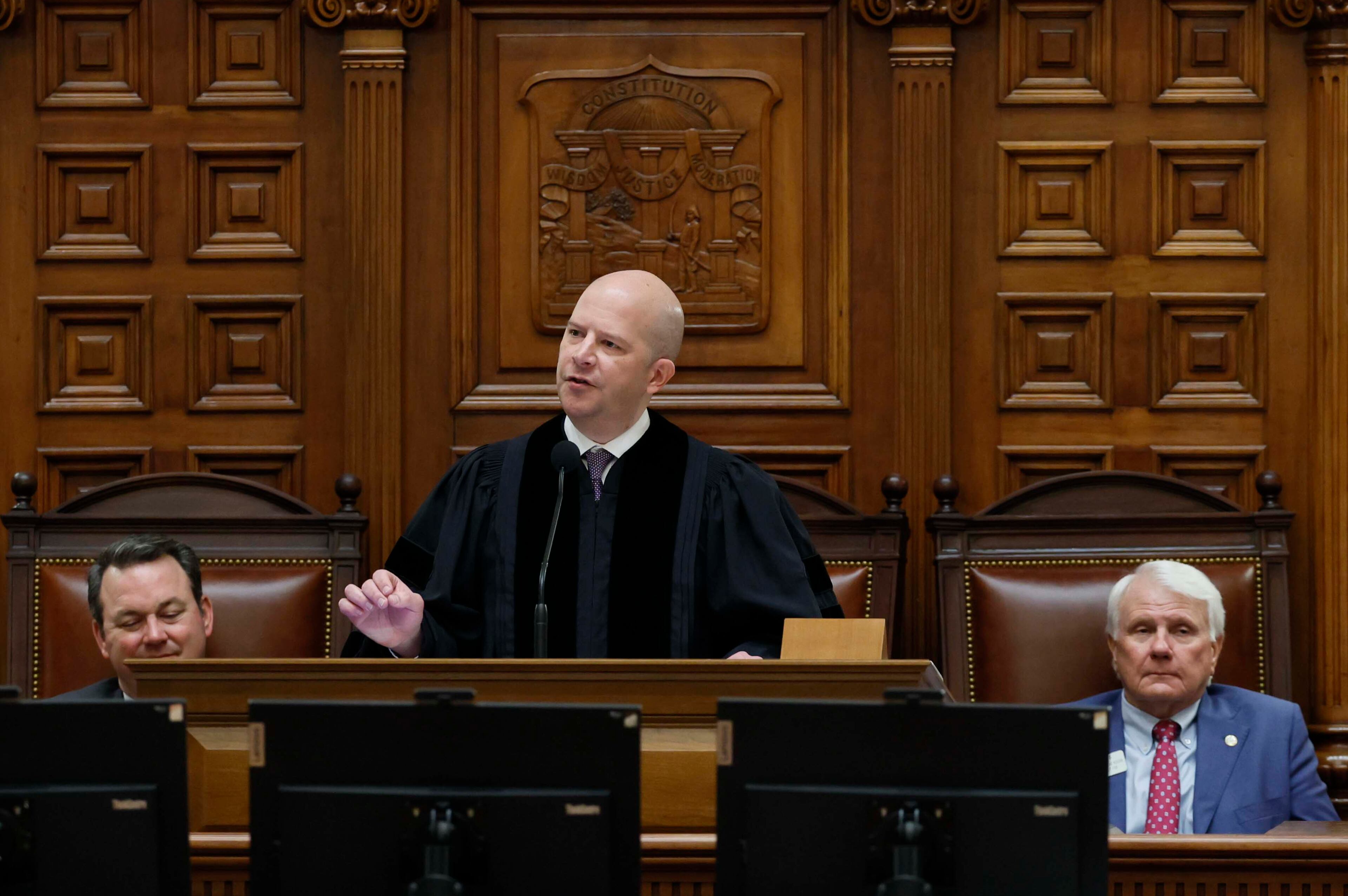AI use in Georgia courts brings harsh consequences

Legal filings riddled with fake, irrelevant and misconstrued case citations are increasingly appearing in front of Georgia judges as the use of artificial intelligence to craft arguments becomes more common.
In recent years, federal and state court judges in Georgia have penalized lawyers and self-represented litigants in association with AI-generated legal references. Sanctions have included fines and case dismissal.
A couple of bogus case citations even made it into an order signed by a DeKalb County judge in a divorce, the Georgia Court of Appeals recently noted when admonishing the Atlanta lawyer who prepared the order.
A 5-year penalty
Jonesboro lawyer Loletha Hale was ordered to tell judges and clients about her reliance on fake legal arguments for a five-year period after she admitted filing an AI-generated brief.
The sanction was handed down Oct. 28 by a federal judge in Atlanta overseeing an assault lawsuit against comedian Katt Williams. Hale, an attorney of 23 years, represents the four women suing Williams.
Hale said she filed the wrong version of the brief by accident after asking her daughter, who is not an attorney or paralegal, to prepare it.
But U.S. District Judge William Ray said Hale’s subsequent filings in the case also included false citations. He said her “cavalier attitude” was a concern.
Lawyer apologizes for botched filing
In July, a federal judge in Valdosta sanctioned an Atlanta attorney for citing nine fake cases in a document filed on behalf of his client, the plaintiff in a contract breach case. The attorney, Brian Braddy, admitted that AI software was used to create the document.
Braddy told U.S. District Judge Louis Sands the document was filed by mistake. He apologized for the error, which he attributed in part to staff turnover at his then-firm.
Braddy was fined $1,000 and ordered to attend a legal education course on artificial intelligence. He was also ordered to pay almost $6,500 for the defendant’s attorney fees and costs in responding to the bogus citations.
Appeals court voices concern
In late June, the Georgia Court of Appeals penalized an Atlanta lawyer who repeatedly cited phony legal cases in her client’s divorce, noting two of them were included in an order signed by the presiding trial judge.
The lawyer, Diana Lynch, had prepared the order signed in May 2024 by DeKalb County Superior Court Judge Yolanda Parker-Smith, the appellate court said, adding it was “troubled” by the situation.
The court criticized Lynch’s apparent use of AI to craft case filings and fined her $2,500 for filing an unreasonable request for attorney fees.
Dodgy documents
A federal judge in Augusta warned a local package delivery company in June that its continued use of “nonexistent case law and falsified quotations” could lead to sanctions.
U.S. District Judge Randal Hall said the company, Sister City Logistics, filed its contract breach complaint and several other pleadings under the name of its purported president and “attorney-in-fact,” Deidre Scott. But Scott is not an attorney, according to the State Bar of Georgia.
Hall said one of the company’s early filings was littered with fake case citations. He said two Georgia lawyers since hired to represent the company could adopt its initial arguments, despite the errors.
Walmart case tossed
Hall also dismissed in April a Walmart customer’s personal injury lawsuit against the retail giant as punishment for the customer’s use of false legal references.
The customer, California resident Doretha Nichols, represents herself in the case and has filed an appeal.
Hall said Nichols had been warned about using made-up case citations, but offered no meaningful explanation and instead attempted to deflect attention with baseless complaints. He said Nichols’ case was due to be dismissed anyway as it was improperly filed.
Atlanta man loses debt collection lawsuit
In November 2024, a federal judge in Atlanta threw out a resident’s lawsuit against a debt collection company, in part because he kept citing fake case law.
U.S. District Judge Victoria Calvert said the plaintiff, Ron Leslie, initially had a lawyer but had represented himself since July 2023. She said Leslie claimed his use of false legal authority was a mistake but he didn’t stop after the problem was brought to his attention.
Leslie had also repeatedly failed to provide documents requested by the debt collector, in violation of court orders, Calvert said.
Judicial challenge fails despite apology
A Hinesville resident’s complaint against the city’s municipal court judge was dismissed in January 2024 by a federal judge in Savannah, after the self-represented resident referenced bogus legal authority.
U.S. District Judge Stan Baker found Jerry Thomas argued his case with legal references that appeared to be valid but were not. And he failed to explain the intent and origin of those references, Baker held.
Case records show Thomas apologized for the errors.



